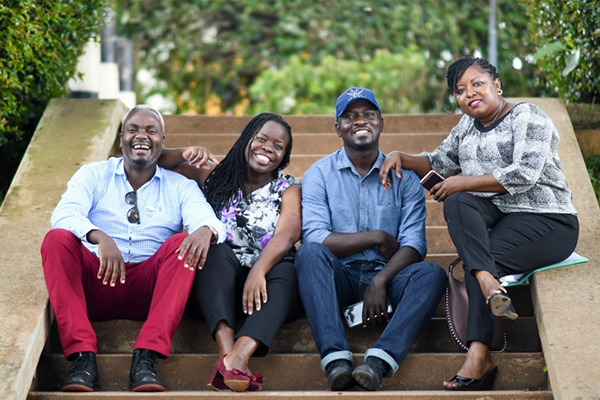
By Rebecca Crall, Areas of Focus Manager, Peacebuilding and Conflict Prevention
In a conversation recently with a group of professional peacebuilders, one of my colleagues (and a new Rotary member) surprised me when he referred to Rotary as a “disruptor for peace.” A disruptor for peace? That was something new and unexpected.
Disruption signals great change – change that’s happening fast. It often feels like it’s taking place at a dizzying pace, and it’s associated with chaos and displacement. It’s not something we often imagine wanting more of. But my colleague’s comment got me thinking of disrupting for good: using our platform as Rotary members to disrupt violence and create peace. Can we apply this idea to build a future where peace is our norm?
When we think about the future now, we don’t seem to feel the same optimism as past generations did. People feel fear, dread and a deep sense of skepticism that change is even possible. This is logical given what we see in the news: the climate crisis, toxic political polarization. No wonder we feel unsure about the future.
But as we begin 2023, I’m challenging myself to disrupt this way of thinking: to look at our challenges as opportunities for growth and change.
In his famous book “The Moral Imagination,” John Paul Lederach challenges us to use our creativity in peacebuilding. He describes this creativity as understanding current situations – such as destructive behaviors and violence – but then pushing past them to imagine a world that transcends existing reality.
This may seem trite. But if you truly think about how much we take for granted in our day-to-day lives, you can see how much room there is for improvement.
As you think about the future, try to find creative ways to build more inclusive and resilient societies. Use Lederach’s four disciplines as a guide.
- Recognize the importance of relationships. Peace is fundamentally about relationships. As we acknowledge our interdependence and connection to one another, we can understand the context in which violence happens – but also imagine a context in which we can transcend violence and build peace.
- Practice paradoxical curiosity. While this sounds complicated, paradoxical curiosity is a matter of respecting contrasting truths. Acknowledge different sides in every situation and look for what lies beneath the face of things. By looking beyond appearances, you can discover new opportunities for healing and peace.
- Provide space for creativity. Respect creative acts and believe that humans can create something new. This attitude is typically grounded in everyday interactions. Use your creativity to imagine and eventually love things that are new and unexpected.
- Take a risk. When we risk, we step into something unknown. While it may seem counterintuitive, many communities subconsciously stay in conflict because that’s what they know. Building peace is about taking the risk to journey into something unknown. It’s also about letting go of what you know.
Moral imagination is ultimately the capacity to conceive and generate something different without denying our current realities. This may seem impossible at times. But by applying these four principles, you can ask the right questions and hopefully find the right answers.
https://blog.rotary.org/2023/01/26/4-ways-to-be-a-disruptor-for-peace/
